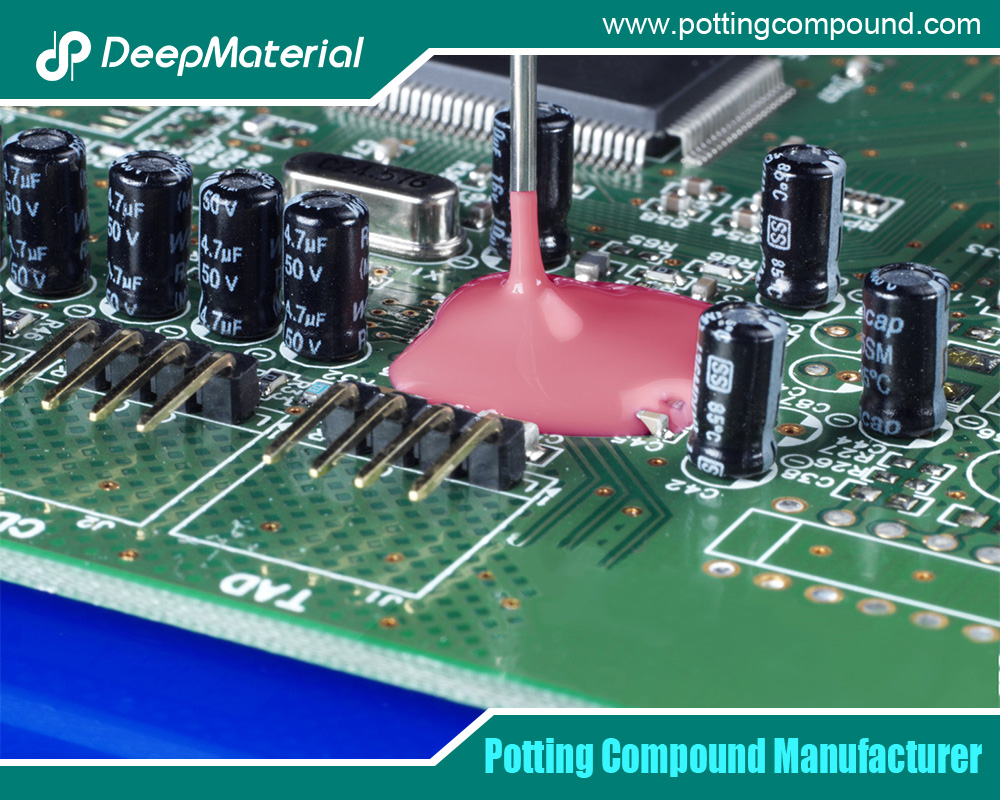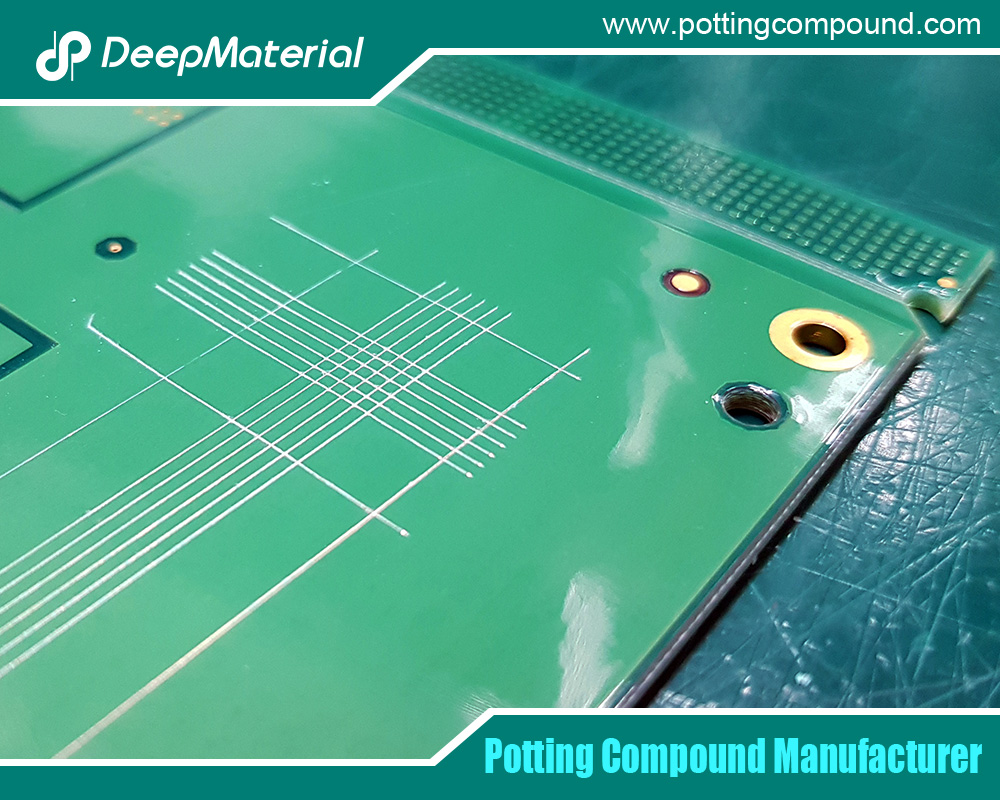

The Potting and Encapsulating Compounds Market: An In-Depth Exploration of Trends, Innovations, and Future Prospects
- Electronic Potting Material Manufacturer
- October 25, 2024
- Acrylic Conformal Coating, acrylic vs silicone conformal coating, Automotive potting material manufacturers, Benefits of Potting Electronics, china electronic potting silicone manufacturer, china electronic potting silicone supplier, circuit board potting, circuit board potting compound, conformal coating, conformal coating electronics, conformal coating for pcb, conformal coating for pcb standards, conformal coating in electronics market, Connector Potting Compound, custom automated electronics potting, customize china electronic potting silicone factories, customize china electronic potting silicone manufacturer, customize china electronic potting silicone supplier, deepmaterial PCB Potting, deepmaterial potting compound, electrical potting compound, Electronic Encapsulant Potting Compound, electronic encapsulant potting compounds, Electronic Encapsulation in Potting Material Manufacturing, Electronic Epoxy Encapsulant Potting Compound, electronic epoxy encapsulant potting compounds, Potting and Encapsulating Compounds Market
The Potting and Encapsulating Compounds Market: An In-Depth Exploration of Trends, Innovations, and Future Prospects
In the rapidly evolving technology landscape, the potting and encapsulating compounds market has emerged as a critical player in ensuring the durability and reliability of electronic components. As devices become more compact and technologically advanced, the demand for adequate protection against environmental factors—such as moisture, dust, heat, and mechanical stress—has skyrocketed. This comprehensive blog post explores the intricate dynamics of the potting and encapsulating compounds market, including market trends, technological innovations, regional insights, and future challenges.
What Are Potting and Encapsulating Compounds?
Potting and encapsulating compounds are specialized materials designed to protect electronic components. While they serve similar functions, there are notable differences between the two:
Potting Compounds:
- These compounds involve filling an entire enclosure with resin. This technique offers robust protection against environmental factors and physical damage.
- They are typically used for high-stress applications where maximum durability is required.
Encapsulating Compounds:
- These compounds usually coat or surround electronic components with a thin material layer. They are more focused on protecting specific components rather than the entire assembly.
- They are commonly used in applications where space is limited, or the component’s functionality needs to be preserved while providing some protection.
Common Applications
Potting and encapsulating compounds are crucial in safeguarding electronic components across diverse industries. Their protective properties against environmental factors, such as moisture and mechanical stress, make them indispensable in sectors ranging from electronics and automotive to aerospace and consumer goods.:
- Electronics:Electronics are widely used in circuit boards, connectors, sensors, and other critical components.
- Automotive:Protects components from vibrations, moisture, and extreme temperatures, especially in electric and hybrid vehicles.
- Aerospace:Ensures reliability in high-stress environments where safety is paramount.
- Consumer Goods:Widely used in household appliances, smart devices, and other electronic gadgets.

Market Overview
The potting and encapsulating compounds market is experiencing robust growth, driven by increasing demand for reliable protection of electronic components. With technological advancements and the rise of compact devices, this market is poised to expand significantly across various industries, including electronics, automotive, and aerospace.
Current Market Size and Growth
The global market for potting and encapsulating compounds has been on an upward trajectory. As of 2023, it was valued at approximately USD 2.5 billion and is projected to reach USD 4.0 billion by 2030, with a compound annual growth rate (CAGR) of around 7.0%.
Factors Driving Growth
- Increased Demand for Electronics:The proliferation of electronic devices in consumer and industrial applications has increased the demand for protective compounds.
- Miniaturization:As devices shrink, the need for compact yet adequate protection has become more critical.
- Innovations in Manufacturing: Advances in materials science have led to the development of more effective and environmentally friendly compounds.
Regional Insights
North America
- Market Dominance:The region holds the largest market share due to its robust technological infrastructure and high demand for consumer electronics.
- Key Players:Major companies include Henkel, Dow Chemical, and 3M.
Asia-Pacific
- Fastest Growth:Expected to witness the highest growth rate, primarily driven by the booming electronics manufacturing sector in countries like China, Japan, and South Korea.
- Investment Opportunities:Increased foreign investments in the manufacturing and technology sectors present significant investment opportunities.
Europe
- Strong Automotive Industry:The European automotive sector emphasizes safety and reliability and has been a significant driver of demand for potting and encapsulating compounds.
- Environmental Regulations:Stricter regulations on chemical usage have prompted innovations in green compounds.
Key Market Trends
The potting and encapsulating compounds market is experiencing significant transformation, driven by technological advancements, sustainability concerns, and the need for electronics miniaturization.
Technological Innovations
- Advanced Formulations:Manufacturers focus on developing environmentally friendly compounds, including water-based and low-VOC (volatile organic compound) options.
- Innovative Materials:Introducing self-healing materials enhances durability, while thermally conductive materials help manage heat in compact electronic devices.
Growing Demand for Miniaturization
- Compact Devices:As consumer electronics shrink, there is an increased need for potting solutions that provide adequate protection without occupying excessive space.
- Customization:The trend toward tailored potting solutions allows manufacturers to meet specific application requirements, catering to diverse industries.
Sustainability and Regulatory Compliance
- Focus on Green Alternatives:Stricter environmental regulations are pushing manufacturers to develop greener potting compounds that comply with regulations while maintaining performance.
- Compliance Challenges:Companies must navigate a complex regulatory landscape, which can pose challenges in product development and market entry.
Integration of Automation and AI
- Enhanced Manufacturing Processes: Integrating automation technologies in production enhances efficiency and reduces costs, allowing for higher output quality.
- AI-Driven Insights:Leveraging artificial intelligence in product design and optimization helps manufacturers stay ahead of market demands, fostering innovation.
Challenges in the Market
Raw Material Costs
- Fluctuations in the prices of raw materials, such as resins and fillers, pose significant challenges for manufacturers.
- Rising costs may lead to increased end-user pricing, impacting overall market growth.
Competition
- The market is highly competitive, with numerous players vying for market share.
- Companies must differentiate themselves through innovation, quality, and customer service.
Regulatory Compliance
- Navigating the complex landscape of environmental regulations can be daunting for manufacturers.
- Non-compliance can lead to significant penalties, lawsuits, and loss of market credibility.
Performance Trade-offs
- While new formulations aim to be environmentally friendly, they may sometimes compromise performance, leading to challenges in meeting industry standards.
Future Outlook
Growth Opportunities
- Rise of IoT:The Internet of Things (IoT) presents lucrative opportunities for potting and encapsulating compounds, especially in smart devices and connected systems.
- Emerging Markets:Increased electronics manufacturing in Asia and Africa will drive demand for protective solutions.
Strategic Partnerships
- Collaborations between manufacturers and technology companies will lead to innovative solutions that address market demands.
- Joint ventures can also help companies expand their geographical reach and product offerings.
Investment in Research and Development
- Companies must prioritize R&D to innovate and develop next-generation materials. This focus will be essential for staying competitive in a rapidly evolving market.
- Partnerships with research institutions and universities can foster innovation and new product development.
Adoption of Advanced Technologies
- Integrating artificial intelligence (AI) and machine learning in the design and production of potting and encapsulating compounds can enhance efficiency and customization.
- Automation in manufacturing processes may lead to cost savings and improved quality control.

Conclusion
The potting and encapsulating compounds market is on a significant growth trajectory, fueled by technological advancements and the increasing demand for reliable and durable electronic components. While challenges such as raw material costs and regulatory compliance exist, the future is rife with opportunities for innovation and expansion. To thrive in this dynamic landscape, stakeholders must remain adaptable and forward-thinking, leveraging new technologies and exploring strategic partnerships.
For more about choosing the Top Potting and Encapsulating Compounds Market: An In-Depth Exploration of Trends, Innovations, and Future Prospects, you can pay a visit to DeepMaterial at https://www.pottingcompound.com/ for more info.
Recent Posts
- Conformal Coating vs. Potting: What’s the Difference for Your PCB?
- Common Mistakes to Avoid When Applying Conformal Coating
- How Does Potting and Encapsulation Protect Electronic Components?
- How to Prevent Voids in Circuit Board Potting: A Comprehensive Guide to Reliable Encapsulation
- How to Choose the Right Potting Material for Your PCB
- Basic Knowledge, Methods and Materials about Electronic Encapsulation
- Electronic Encapsulation Technology to Enhance the Durability of Automotive Electronics
- The Unsung Guardian: Why Silicone Potting Compound is Widely Used in the Electronics Industry
- The Development Trend and Future Prospects of Electrical Potting Compound in the Glue Industry
- The Conformal Coating for PCB Market Has Entered an Explosive Period: Key Drivers and Reports Detailed
Tags
Related Posts


Common Mistakes to Avoid When Applying Conformal Coating

How Does Potting and Encapsulation Protect Electronic Components?


How to Choose the Right Potting Material for Your PCB

